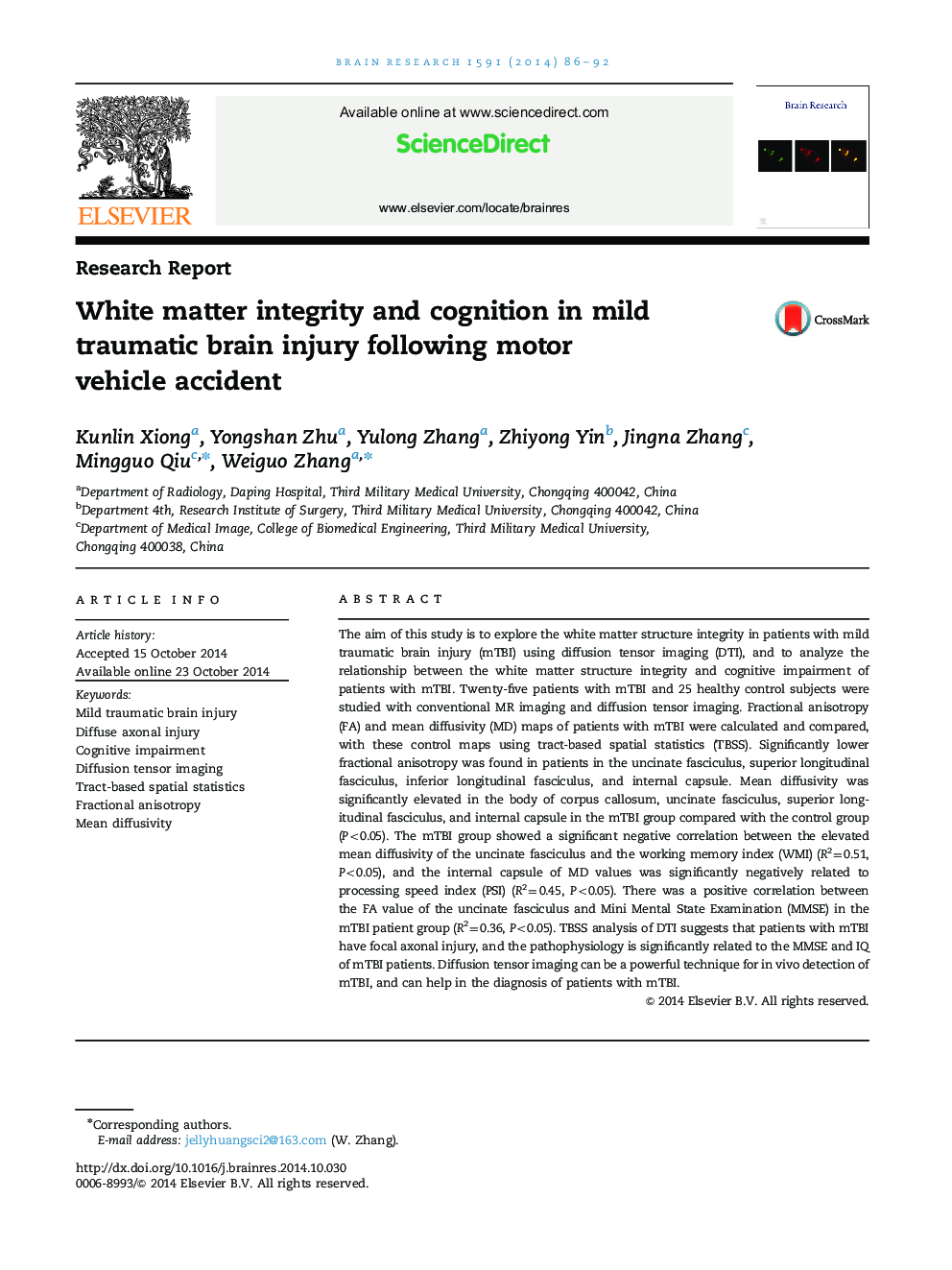| Article ID | Journal | Published Year | Pages | File Type |
|---|---|---|---|---|
| 6263225 | Brain Research | 2014 | 7 Pages |
â¢The performance IQ scores of mTBI patients are significantly decreased.â¢Significantly lower FA is found in the white matter tracts in mTBI patients.â¢The MD is significantly elevated in the white matter tracts in mTBI patients.â¢The FA of uncinate fasciculus is positively correlated with MMSE in mTBI patients.â¢The MD of uncinate fasciculus is negatively correlated with the performance IQ in mTBI patients.
The aim of this study is to explore the white matter structure integrity in patients with mild traumatic brain injury (mTBI) using diffusion tensor imaging (DTI), and to analyze the relationship between the white matter structure integrity and cognitive impairment of patients with mTBI. Twenty-five patients with mTBI and 25 healthy control subjects were studied with conventional MR imaging and diffusion tensor imaging. Fractional anisotropy (FA) and mean diffusivity (MD) maps of patients with mTBI were calculated and compared, with these control maps using tract-based spatial statistics (TBSS). Significantly lower fractional anisotropy was found in patients in the uncinate fasciculus, superior longitudinal fasciculus, inferior longitudinal fasciculus, and internal capsule. Mean diffusivity was significantly elevated in the body of corpus callosum, uncinate fasciculus, superior longitudinal fasciculus, and internal capsule in the mTBI group compared with the control group (P<0.05). The mTBI group showed a significant negative correlation between the elevated mean diffusivity of the uncinate fasciculus and the working memory index (WMI) (R2=0.51, P<0.05), and the internal capsule of MD values was significantly negatively related to processing speed index (PSI) (R2=0.45, P<0.05). There was a positive correlation between the FA value of the uncinate fasciculus and Mini Mental State Examination (MMSE) in the mTBI patient group (R2=0.36, P<0.05). TBSS analysis of DTI suggests that patients with mTBI have focal axonal injury, and the pathophysiology is significantly related to the MMSE and IQ of mTBI patients. Diffusion tensor imaging can be a powerful technique for in vivo detection of mTBI, and can help in the diagnosis of patients with mTBI.
